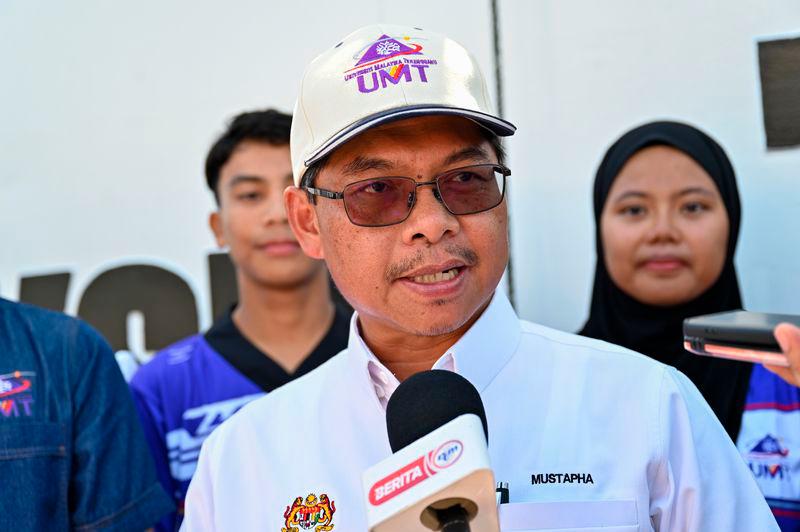KOTA KINABALU: Deputy Minister of Higher Education, Datuk Mustapha Sakmud advised the student group planning to organise a protest gathering over the water supply issue at Universiti Malaysia Sabah (UMS) on June 14 to think rationally.
He also urged the students to seek accurate information and facts about the water issue by engaging with the UMS management, Sabah State Water Department, or any relevant parties.
“The student group needs to distinguish between on-campus and off-campus problems... even though it is a water issue, we need to act appropriately.
“As Malaysian citizens, we have rights and responsibilities. I do not oppose the student group continuing with the protest as long as it follows existing regulations,“ he told reporters after officiating the UpayaKPT Sepanggar Programme here today.
Mustapha, who is also the Member of Parliament for Sepanggar, was commenting on the planned #KamiMahuAir Sabah Protest on June 14 in front of Menara Kinabalu here.
Commenting further, he said the organisers need to obtain a permit from the police if they wish to proceed with the protest.
“If they get permission, they can proceed; we cannot stop them,“ he said.
Meanwhile, commenting on the programme, Mustapha said the UpayaKPT Programme is an effort and initiative by the Ministry of Higher Education (KPT) aimed at making the research findings of Higher Education Institutions (IPTs) beneficial for community development.
“Through the UpayaKPT Programme, various activities such as community short courses are conducted to enhance skills and capacity building among the community.
“Through this programme, KPT, especially Public Universities, Polytechnics, and Community Colleges, will also implement programmes for the transfer of knowledge, expertise and technology to the community,“ he said.
He added that the UpayaKPT Programme, which is a community programme, is believed will enable the workforce and students of IPTs to also contribute their energy and expertise to developing and empowering the community.
“I hope that Universities, Polytechnics, and Community Colleges will always reach out and engage with the community, take note of the issues and problems faced by society and communities, and strive to help solve them,“ he said.









